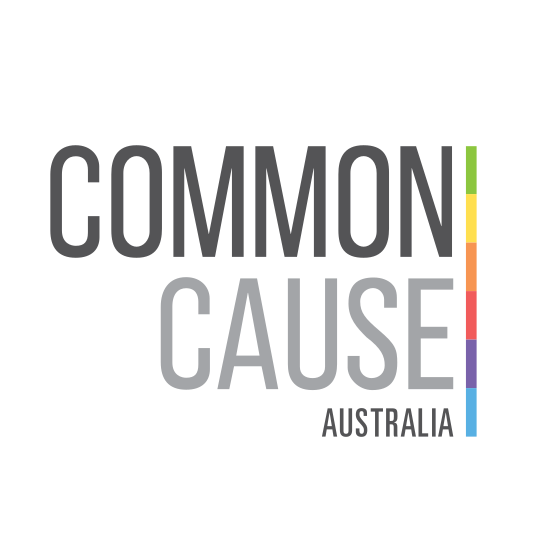Case Study: animal Welfare in Aotearoa
In May 2022, Animals Aotearoa executive director Marianne Macdonald reached out to Common Cause for support.
Marianne had attended a Fundamentals workshop with Common Cause co-director Mark Chenery a few years earlier and was a convert to values-based messaging.
“I read all the materials from Common Cause. I encouraged all my colleagues to attend trainings. Values-based messaging just made sense and was backed by a wealth of social science research,” says Marianne.
But Marianne knew she needed extra support putting values-based messaging into practice for a new campaign her charity was developing around the treatment of chickens bred for meat.
The Better Chicken Commitment is a set of standards for chicken welfare agreed upon by leading animal protection organisations internationally. It includes a shift to healthier breeds of chicken for meat, more space per bird, environmental enrichments in the sheds and less suffering at slaughter.
“We had been following the momentum in Europe and North America that had seen over 500 companies sign up to the Better Chicken Commitment in just a few years. It was something missing from the discussion in New Zealand,” says Marianne. “While all supermarkets and most major retailers had cage-free commitments for eggs, none had any plans for equivalent improvements for chickens bred for meat.”
The problem was that welfare issues for chickens bred for meat are complex and Marianne and her team found it challenging to describe the solutions.
A key plank of the Better Chicken Commitment is for the chicken industry to stop using certain breeds of chickens.
“Most people don’t realise that the chickens raised commercially for meat in New Zealand, including free range, have been selectively bred to grow abnormally fast. These breeds of chickens grow so big and so fast that many suffer chronic pain and lameness. Some can’t lift their bodies up off the floor to reach food or water. Others struggle to breathe or suffer organ failure within weeks of being hatched. All because they’ve been bred to grow faster than nature intended.”
But framing the problem as “fast” and the solution as “slow” wasn’t a helpful frame when trying to bring food brands or consumers on board. At an intuitive level for most people, slow is rarely better than fast.
Working with Common Cause, Animals Aotearoa decided to re-frame the issue away from the unhelpful “fast vs slow” debate and instead to frame it using a “natural vs unnatural” frame.
Using this new frame, the problem became “abnormally fast-growing breeds” while the solution became “more natural breeds” or “chickens that grow the way nature intended”.
“Anecdotally, the ‘natural vs unnatural’ framing is making a difference to how supporters understand the campaign. Previously we had a lot of people confused about what the campaign was really about, but that seems to have changed. We’re even seeing people on social media and elsewhere start using the word ‘unnatural’ themselves,” says Marianne.
Similarly, Animals Aotearoa strengthened its policy of avoiding terms that commodify chickens. For example, instead of using the industry term ‘broiler’ , Animals Aotearoa calls them chickens, birds or animals to remind New Zealanders that these are living beings first and foremost, not inevitable food products.
Another challenge for the campaign was that most New Zealanders eat chicken. Any campaign about the poor treatment of chickens raised for meat, therefore, risked alienating audiences by making them defensive.
To reduce this risk, the campaign’s messaging highlighted the example of New Zealand’s recent shift towards free-range eggs as proof that most people care deeply about chicken welfare. This positioned the public as already on-side with the core values of the campaign and positioned food brands as out of touch if they refused to budge.
By pointing to the success of the Better Chicken Commitment in other countries, the campaign also created a sense of momentum and inevitability for change.
And it worked! Despite strong opposition from the chicken industry and initial reluctance on behalf of food brands to even meet with Animals Aotearoa, in little over 12 months the campaign has secured commitments from eight key food brands - including HelloFresh, The Coffee Club and Mexico.
Marianne is convinced values-based messaging played a key role in the campaign’s success to date.
“One of the strengths of values-based messaging is that it speaks to everyone across the board, since everyone has the same core values, even if they are prioritised differently in individuals,” says Marianne.
Animals Aotearoa has also seen a surge in supporters and donations since the campaign launched, which Marianne believes is partly driven by the organisation’s ability to more clearly describe the problem the organisations is working to solve.
Importantly, Marianne believes it’s important for progressive organisations to use values-based messaging not only for the benefits it brings to the organisations themselves, but because of the impact it has on the community more broadly.
“At its heart, the Common Cause approach helps to activate pro-social values, meaning that it helps not just our work, but should also be helping to encourage progressive attitudes across the board,” says Marianne.
For more information about Animals Aotearoa and its campaigns visit www.animalsaotearoa.org

